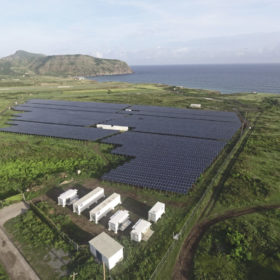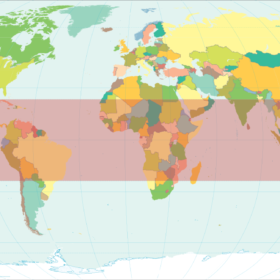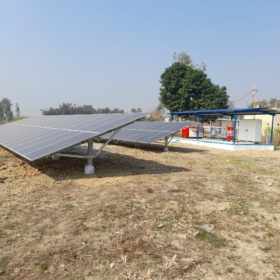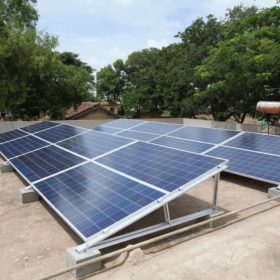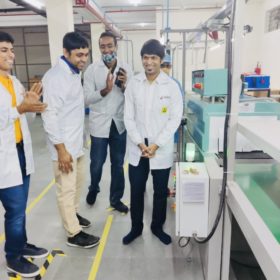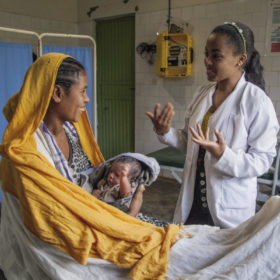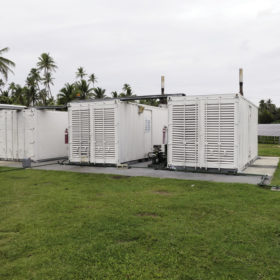New method to build microgrids based on solar, hydrogen
The use of polymer electrolyte membrane fuel cells as backup power generation in solar microgrids could drive down costs and improve efficiency, according to an international group of researchers. They have proposed a new energy management system that could be ideal for hybrid solar-hydrogen microgrids in remote locations.
NTPC invites proposals for solarization projects in ISA member countries
The selected applicants are required to execute projects across categories like solar-powered cold storage, solar water pumps, solar-powered reverse-osmosis water systems and off-grid solar systems for primary health care centers on a turnkey basis. The work includes engineering, supply, erection, commissioning along with maintenance support for three years.
Tata Power arm hits ‘100 solar microgrids’ milestone
TP Renewable Microgrid has installed an aggregate 3 MW of solar microgrid capacity with its 100th project commissioned in Ratnapur, Uttar Pradesh.
The case for distributed solar with storage
Gopal Lal Somani, a former director at the Jaipur-based Rajasthan Renewable Energy Corporation Ltd (RRECL), says distributed solar systems with storage are the key to achieving India’s mission of supplying clean energy at an affordable cost to all. In this article, he dwells on the benefits and techno-commercial feasibility of these systems for the nation.
The future of power electronics is distributed, aggregated and service oriented
IHS Markit released a white paper in which the analyst outfit shared some predictions for the power electronics market. First and foremost, inverters will become smarter, and after some power outages in key markets, these devices are gearing up to take on more grid stabilizing tasks, which hitherto had been reserved for synchronous generators.
IISc Bangalore installs solar microgrid in primary health center
The network consists of a 96 V, 5.2 kW solar power system and a 96 V, 7.5 kVA PV inverter plus 96 V, 150 Ah of lead-acid battery storage. The microgrid will provide backup power during emergencies.
Inverted Energy opens 100 MWh lithium battery plant
The lithium battery assembly facility at Okhla, New Delhi, would initially produce batteries for energy storage in residential, commercial and industrial sectors, and for electric mobility applications. The plan is to eventually cater to critical applications like telecom and healthcare as well.
India re-elected as President of the International Solar Alliance
Launched in November 2015, the alliance aims to collectively address key challenges to the scaling up of solar energy in member countries that fall between Tropic of Cancer and Tropic of Capricorn. The Alliance is now supported by 68 member countries, and a further 20 countries are in the process of becoming members.
The long read: Packing light
Tens of thousands of health facilities in low- and middle-income countries lack reliable electricity, contributing to high rates of maternal mortality. Health workers struggling in near darkness use candles, kerosene lanterns, or cellphones to provide illumination for critical procedures. They ask patients to pay for candles, batteries for flashlights, or kerosene for lanterns – a barrier to health care for women living in extreme poverty. We Care Solar designs and delivers pre-wired compact Solar Suitcases for maternal health care facilities in the developing world. This all-in-one solar+storage solution for childbirth evolved from a doctoral student’s research project, and is being scaled worldwide to ensure that no woman gives birth in the dark.
The long read: Advanced lead batteries for microgrids
With demand for cleaner forms of energy and a greater need for flexibility and reliability in the power supply, the role of battery energy storage is critical. Innovation in battery technology is essential to match demand growth and the shift in technical requirements. Predictions of 400,000 MWh of battery storage required by 2025 means that all battery technologies will play a role in contributing to a clean energy future.
